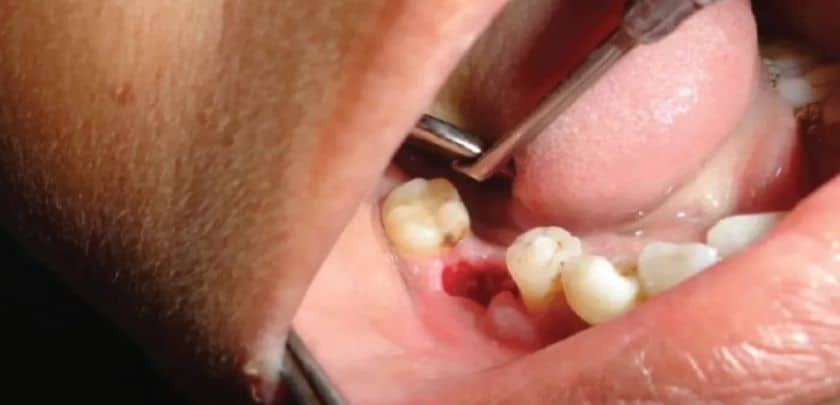Why Does My Jaw Hurt Long After Tooth Extraction?
Experiencing jaw pain long after a tooth extraction can be a concerning and uncomfortable issue. While it’s common to feel some degree of discomfort immediately following the procedure, persistent pain that extends for weeks or months merits attention and understanding. This blog post delves into the potential reasons behind prolonged jaw pain after tooth extraction, shedding light on the symptoms, underlying causes, treatment options, and preventive measures.
Understanding Tooth Extraction
Tooth extraction is a dental procedure that involves the removal of a tooth from its socket in the bone. It’s usually performed due to reasons such as severe tooth decay, infection, overcrowding, or the risk of complications. While the procedure itself is intended to alleviate pain and prevent future dental problems, it’s not uncommon for patients to experience some level of discomfort during the healing process.
Immediate Post-Extraction Symptoms
Immediately following a tooth extraction, it’s normal to experience symptoms such as:
- Swelling: Both in the gums and around the face.
- Bleeding: Mild to moderate bleeding at the extraction site.
- Pain: Varying degrees of discomfort as the anesthesia wears off.
These symptoms are typically manageable with proper care and subside within a few days to a week.
Persistent Jaw Pain: Causes and Concerns
When pain persists or worsens long after the expected recovery period, it’s essential to explore the underlying causes, which may include:
1. Dry Socket (Alveolar Osteitis)
Dry socket is a common complication where the blood clot that forms in the socket to protect the bone and nerves underneath dissolves or dislodges before the wound has healed. This condition exposes the underlying bone and nerves, leading to severe pain not only in the socket but also along the nerves radiating to the side of your face. Typically, dry socket pain begins a few days after extraction and can be accompanied by bad breath and an unpleasant taste in the mouth.
2. Infection
Infections can occur at the extraction site if bacteria invade the socket, potentially leading to pain, swelling, and general malaise. Symptoms of an infection might include persistent throbbing pain, swelling, redness, and pus discharge from the extraction site. Fever and swollen lymph nodes can also indicate an infection.
3. Jaw Damage or Trauma
During the extraction process, especially in cases of impacted wisdom teeth removal, there might be excessive force applied to the jaw, which can cause jaw pain or even damage to the jawbone. Symptoms might include difficulty opening the mouth, pain when chewing, or a persistent ache in the jaw.
4. Nerve Damage
Although rare, nerve damage can occur during tooth extraction, particularly if the surgical site is close to nerves. This can result in a prolonged numb feeling, tingling, or pain in the jaw, lips, chin, or tongue.
5. Osteomyelitis
Osteomyelitis is an infection that spreads to the bone. In the context of tooth extraction, if an infection in the extraction site spreads to the jawbone, it can lead to inflammation, pain, and a feeling of heaviness in the jaw.
Diagnosis and Treatment
Diagnosing the cause of prolonged jaw pain after tooth extraction involves a comprehensive dental examination, which may include X-rays or CT scans to assess the condition of the jawbone and surrounding tissues. Treatment options vary based on the underlying cause and may include:
- Medication: Pain relief medication, antibiotics to treat infections, or medicated dressings for conditions like dry socket.
- Therapy: Physical therapy exercises to strengthen the jaw and improve mobility.
- Surgery: In cases of severe infection, osteomyelitis, or nerve damage, surgical intervention may be necessary.
Prevention and Care
Preventing complications and mitigating pain after a tooth extraction involves following your dentist’s post-operative care instructions closely. These may include:
- Maintaining oral hygiene with gentle cleaning around the extraction site.
- Avoiding smoking and the use of straws to prevent dry socket.
- Eating soft foods and avoiding chewing from the extraction side.
- Using cold compresses to reduce swelling.
- Following any prescribed medication regimen.
Conclusion
While jaw pain is a common post-extraction symptom, persistent or severe pain should not be ignored. Understanding the potential causes of this discomfort can help address and resolve the issue effectively. If you’re experiencing prolonged jaw pain after a tooth extraction, it’s crucial to consult with your dentist or an oral surgeon for a proper diagnosis and tailored treatment plan. Remember, timely intervention can prevent further complications and ensure a smooth recovery process.


